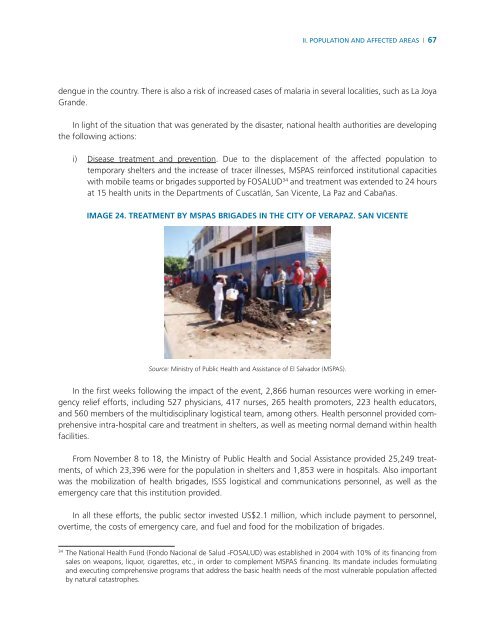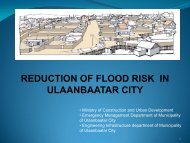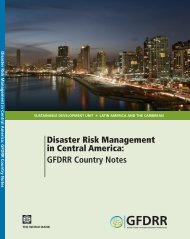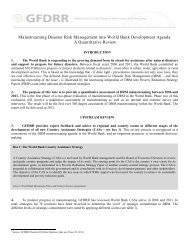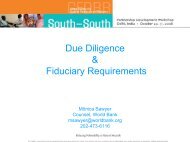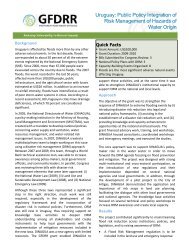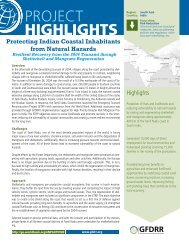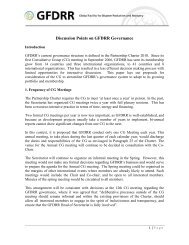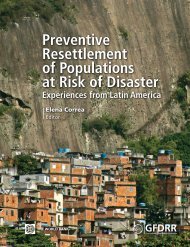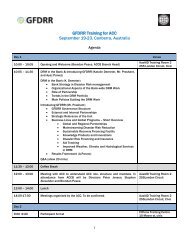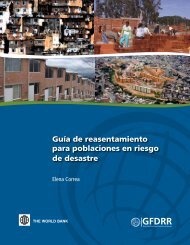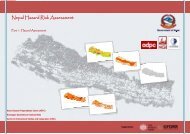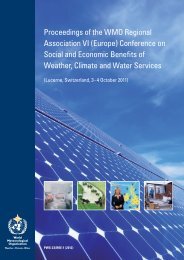El Salvador - GFDRR
El Salvador - GFDRR
El Salvador - GFDRR
Create successful ePaper yourself
Turn your PDF publications into a flip-book with our unique Google optimized e-Paper software.
II. POPULATION AND AFFECTED AREAS | 67<br />
dengue in the country. There is also a risk of increased cases of malaria in several localities, such as La Joya<br />
Grande.<br />
In light of the situation that was generated by the disaster, national health authorities are developing<br />
the following actions:<br />
i) Disease treatment and prevention. Due to the displacement of the affected population to<br />
temporary shelters and the increase of tracer illnesses, MSPAS reinforced institutional capacities<br />
with mobile teams or brigades supported by FOSALUD 34 and treatment was extended to 24 hours<br />
at 15 health units in the Departments of Cuscatlán, San Vicente, La Paz and Cabañas.<br />
IMAGE 24. TREATMENT BY MSPAS BRIGADES IN THE CITY OF VERAPAZ. SAN VICENTE<br />
Source: Ministry of Public Health and Assistance of <strong>El</strong> <strong>Salvador</strong> (MSPAS).<br />
In the first weeks following the impact of the event, 2,866 human resources were working in emergency<br />
relief efforts, including 527 physicians, 417 nurses, 265 health promoters, 223 health educators,<br />
and 560 members of the multidisciplinary logistical team, among others. Health personnel provided comprehensive<br />
intra-hospital care and treatment in shelters, as well as meeting normal demand within health<br />
facilities.<br />
From November 8 to 18, the Ministry of Public Health and Social Assistance provided 25,249 treatments,<br />
of which 23,396 were for the population in shelters and 1,853 were in hospitals. Also important<br />
was the mobilization of health brigades, ISSS logistical and communications personnel, as well as the<br />
emergency care that this institution provided.<br />
In all these efforts, the public sector invested US$2.1 million, which include payment to personnel,<br />
overtime, the costs of emergency care, and fuel and food for the mobilization of brigades.<br />
34<br />
The National Health Fund (Fondo Nacional de Salud -FOSALUD) was established in 2004 with 10% of its financing from<br />
sales on weapons, liquor, cigarettes, etc., in order to complement MSPAS financing. Its mandate includes formulating<br />
and executing comprehensive programs that address the basic health needs of the most vulnerable population affected<br />
by natural catastrophes.


